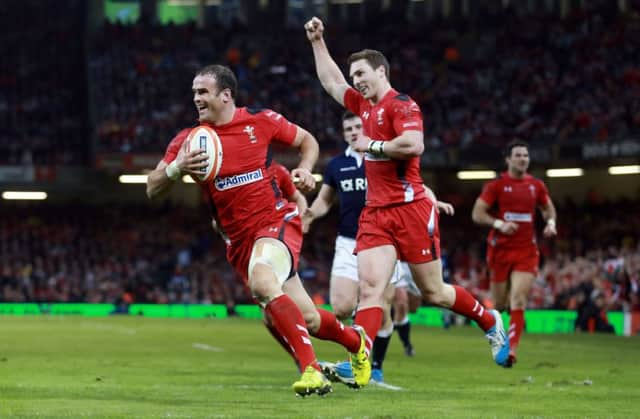Rory Lawson: Scotland scoreline hard to bear


Saturday was a dark day, there’s no hiding from that; the sort of day that as a player you would dread happening and as a supporter, it’s painful to watch. It was an opportunity to finish a campaign on a high at one of sport’s finest venues.
The challenge was far from simple but as I said in my preview column, I felt the boys had a big performance in them and had a chance of winning at the Millennium stadium for the first time in 12 years. For this theory to evolve into reality I felt all 23 players would have to play their best game of the Championship and we had to keep a full complement of players on the field for 80 minutes.
Advertisement
Hide AdAdvertisement
Hide AdThe Welsh firepower throughout their side is such that playing with a full complement is a huge physical challenge. Doing so a man down compromises the 14 remaining to a level that is barely manageable. George North, Taulupe Faletau, Jamie Roberts and Jon Davies are just a few of the human wrecking balls who can generate front foot ball, a prerequisite for Wales to play “Warrenball” effectively. They’ve faltered when defences have put their skills under pressure, stressed their scrum and harried their lineout. For Scotland it’s now all a case of if, buts and maybes. What could have been.
Stuart Hogg will be in a bad place. His petulant shoulder charge on Dan Biggar was nasty, stupid, and was further magnified in slow motion. He was quick to apologise to Biggar, his Scotland team-mates, management and perhaps most of all, the fans. Wales had the better of a keenly contested opening quarter but it took no time at all for them to capitalise on the one-man advantage when Hogg was sent from the field.
Playing with 14 men for a ten-minute sin bin is hard enough. There are some positions whose momentary loss from the XV can compromise things more than others. Hogg is Scotland’s most dangerous player with the ball. Without the ball, full-back is the last line of defence and covers any probing kicks into the back field. He works in a pendulum with both his wingers to cover the field, whilst Hogg also possesses a howitzer of a right boot. Without him, Scotland still needed to cover the back field (typically with both wingers) but this left the front line a man short. It may sound insignificant but one extra defender in that line can add eight to ten metres of width.
The shackles were off for the Welsh attack and they produced the most scintillating play of their campaign with some cracking rugby and memorable tries. Their “Plan A” was devastating.
For Scotland, they once again showed huge resolve and fight in testing circumstances. There’s little value in debriefing Saturday in isolation so instead we must focus on the campaign as a whole. Ireland managed four wins and a loss. They did so for the sixth time but this was the first time they have been crowned champions with that record, their only other Championship being in 2009, a five-win, Grand Slam year. That shows just how difficult this tournament is to compete in, let alone win.
A solitary win for Scotland resulted in fifth place and the squad must learn from their experiences, good and bad, during this series and look forward to a fresh start under the watchful eye of Vern Cotter.